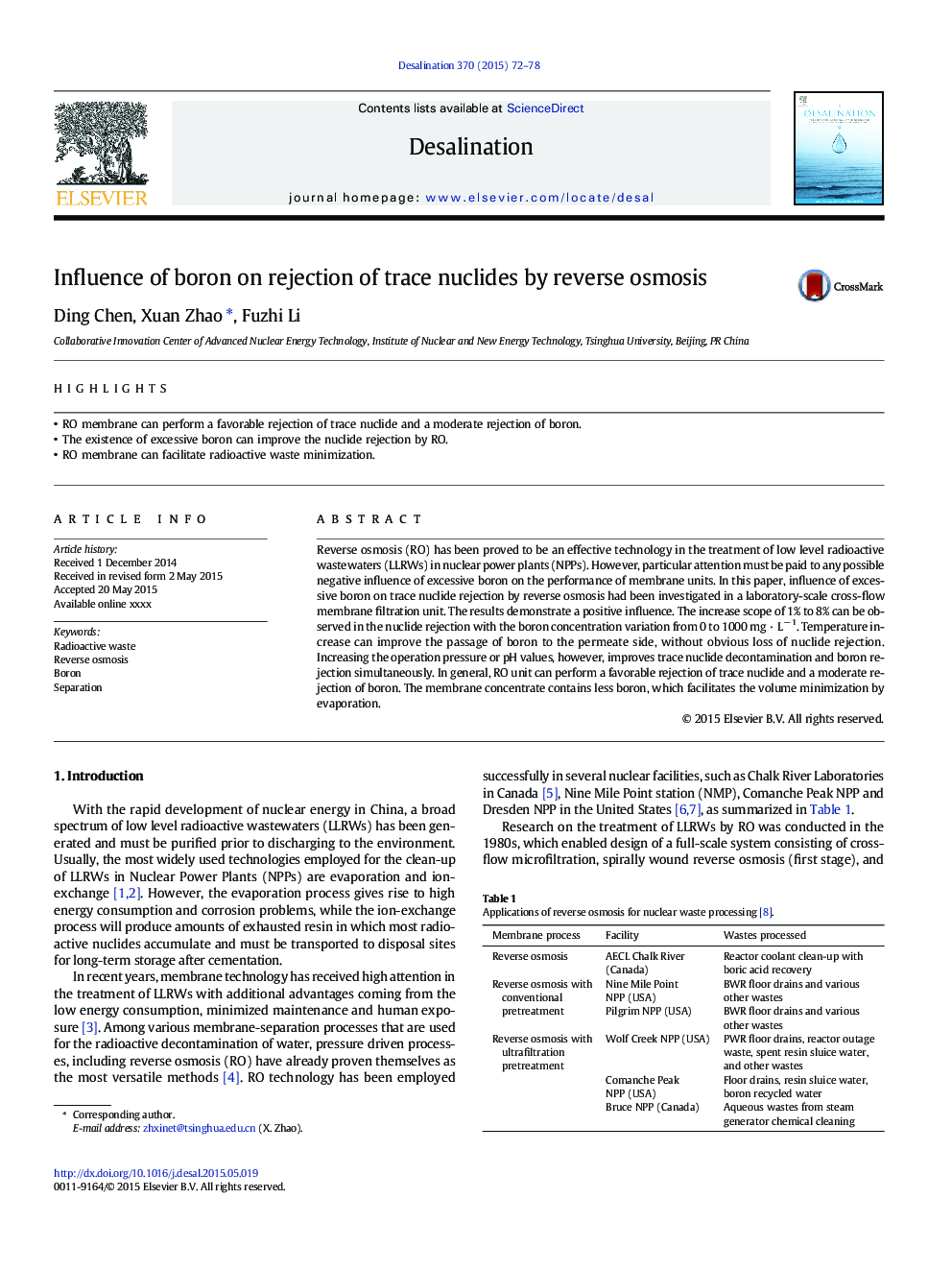| کد مقاله | کد نشریه | سال انتشار | مقاله انگلیسی | نسخه تمام متن |
|---|---|---|---|---|
| 622943 | 1455325 | 2015 | 7 صفحه PDF | دانلود رایگان |
عنوان انگلیسی مقاله ISI
Influence of boron on rejection of trace nuclides by reverse osmosis
ترجمه فارسی عنوان
تأثیر بور بر روی رد شدن نوکلیدهای ردیابی توسط اسمز معکوس
دانلود مقاله + سفارش ترجمه
دانلود مقاله ISI انگلیسی
رایگان برای ایرانیان
کلمات کلیدی
زباله رادیواکتیو، اسمز معکوس، بور، جداسازی،
موضوعات مرتبط
مهندسی و علوم پایه
مهندسی شیمی
تصفیه و جداسازی
چکیده انگلیسی
Reverse osmosis (RO) has been proved to be an effective technology in the treatment of low level radioactive wastewaters (LLRWs) in nuclear power plants (NPPs). However, particular attention must be paid to any possible negative influence of excessive boron on the performance of membrane units. In this paper, influence of excessive boron on trace nuclide rejection by reverse osmosis had been investigated in a laboratory-scale cross-flow membrane filtration unit. The results demonstrate a positive influence. The increase scope of 1% to 8% can be observed in the nuclide rejection with the boron concentration variation from 0 to 1000 mg · Lâ 1. Temperature increase can improve the passage of boron to the permeate side, without obvious loss of nuclide rejection. Increasing the operation pressure or pH values, however, improves trace nuclide decontamination and boron rejection simultaneously. In general, RO unit can perform a favorable rejection of trace nuclide and a moderate rejection of boron. The membrane concentrate contains less boron, which facilitates the volume minimization by evaporation.
ناشر
Database: Elsevier - ScienceDirect (ساینس دایرکت)
Journal: Desalination - Volume 370, 17 August 2015, Pages 72-78
Journal: Desalination - Volume 370, 17 August 2015, Pages 72-78
نویسندگان
Ding Chen, Xuan Zhao, Fuzhi Li,
